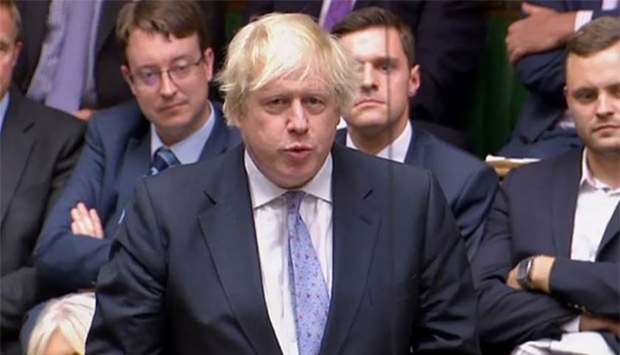Britain's former foreign secretary Boris Johnson accused Prime Minister Theresa May of betraying millions of Brexit voters and urged the government to rethink its strategy, adding that the country would never again have the chance to get it right.
Johnson, who led the main Brexit campaign in the 2016 referendum, resigned this month over May’s strategy, triggering the government's biggest crisis since she lost her parliamentary majority after calling a snap election last year."It is not too late to save Brexit," Johnson told parliament in his resignation speech on Wednesday. "We have time in these negotiations - we have changed tack once and we can change again.
He added: "The problem is not that we failed to make the case for a Free Trade Agreement of the kind spelt out (by May) at Lancaster House, we haven't even tried. We must try now because we will not get another chance to get it right."
In a speech at London's Lancaster House in January, May listed 12 priorities for Brexit including the pursuit of a bold and ambitious free trade agreement with the EU and an end to the jurisdiction of the European Court of Justice in Britain.
Her government is now proposing to negotiate the closest possible commercial links - "a common rule book" - for goods trade with the bloc, saying this is the only way to balance political and economic priorities for Brexit.
But her plan, finalised this month at a cabinet meeting at her country house of Chequers, has pleased few on either side, compounding the divisions within the Conservative Party that have so far frustrated progress in talks with the EU.
Many Brexit or "Leave" campaigners feel they are losing ground to voices questioning the meaning of the 2016 vote.
Johnson warned against making the "the fatal mistake of underestimating the intelligence of the public" by saying one thing to the EU and pretending to do another thing to the public.
"It as though a fog of self-doubt has descended," Johnson said. "We should not and need not be stampeded by anyone.... Let us again aim explicitly for that glorious vision of Lancaster House ... not the miserable permanent limbo of Chequers."

